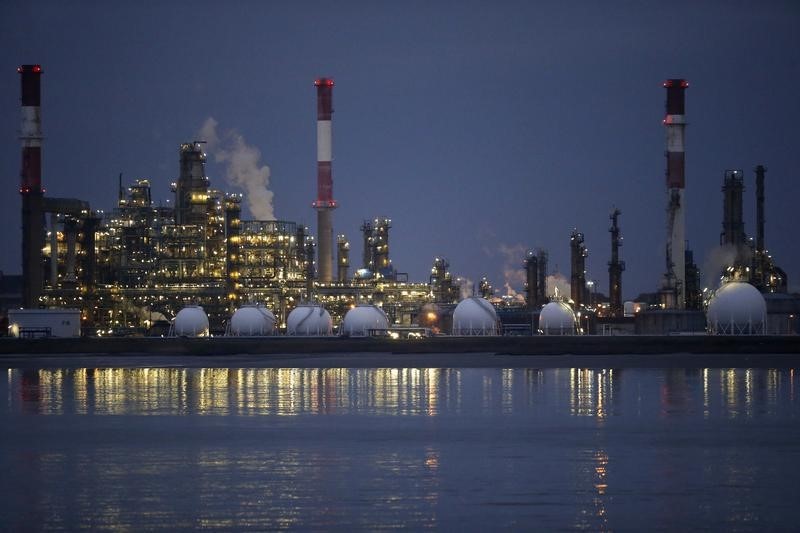* U.S. crude inventories up 1.8 mln barrels to 488.8 mln -API
* OPEC output at 2017-high of 33 mln bpd
* Oversupply to return, to last for years -Douglas Westwood
By Henning Gloystein
SINGAPORE, Aug 2 (Reuters) - Oil fell on Wednesday, with rising U.S. fuel inventories pulling U.S. crude back below $50 per barrel, while ongoing high supplies from producer club OPEC weighed on international prices.
U.S. West Texas Intermediate (WTI) crude futures CLc1 were at $48.85 per barrel at 0046 GMT, down 31 cents, or 0.6 percent, from their last settlement. That came after the contract opened above $50 for the first time since May 25 on Tuesday. crude futures LCOc1 , the international benchmark for oil prices, were trading down 30 cents, or 0.6 percent, at $51.48 per barrel.
The American Petroleum Institute (API) said late on Tuesday that U.S. crude stocks rose by 1.8 million barrels in the week ending July 28 to 488.8 million, hitting hopes that recent inventory draws were a sign of a tightening U.S. market. global markets, prices were weighed down by a survey this week that showed production by the the Organization of the Petroleum Exporting Countries (OPEC) hit a 2017-high of 33 million barrels per day (bpd), despite the club's pledge to restrict output together with some non-OPEC producers including Russia by 1.8 million bpd between January this year and March 2018. of rising global output, energy consultancy Douglas Westwood said oversupply would likely return soon, and last for years.
"Oversupply will actually return in 2018. This is due to the start-up of fields sanctioned prior to the downturn. This is in addition to the production gains through increased investment and activity in the U.S. unconventional space," said Steve Robertson, head of research for the firm's Global Oilfield Services.
Douglas Westwood said it expected oversupply to last until at least 2021.
Robertson said that "external factors such as major interruptions to supply from political or weather-related events can shift the balance quickly". But he warned that "any expectations of recovery based upon optimism or wishful thinking along 'it always bounces back' should be tempered by a reality check, and the very real possibility that the current recovery could take much longer to materialise".
